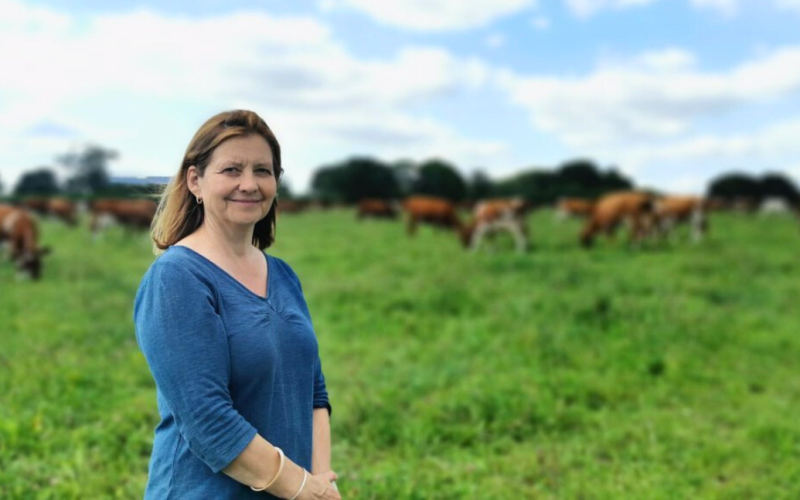Farmer Sophie Alexander would not describe herself as tech-minded, but that’s precisely why she wanted to work with the UK Agri-Tech Centre.
“We became a Satellite farm because I don’t want to be farming the same way tomorrow as I did yesterday. You have to know what’s going on and be at the cutting edge. I feel lucky to have been a component at the beginning of the satellite farm project and to have stuck with it. You don’t always know what the outcomes will be; I certainly don’t always know what factors will eventually add financial value to my business, but my involvement has definitely contributed to our knowledge and information about the farm. I’m currently involved in the biodiversity project, and I have really enjoyed the process.
I like meeting the innovators and technology developers and I’ve always been impressed with the individuals I have connected with at the UK Agri-Tech Centre.
It is vital the UK Agri-Tech Centre has included organic farms; it is very important to understand how technology can cater and help develop all farming systems and circumstances.
As we know, the majority of farmers are in their 60s and many farmers, like me, aren’t tech-minded. That’s where being involved in the process helps: to begin with, I couldn’t fly the drones that were being used on the farm and had to call someone up to get their help with data input, but gradually the technology is becoming more user friendly and participants more tech savvy.
An important next step will be to ensure that data presentation is clear and intelligible for farmers, but to see the end results could be very exciting. Everything is about co-creation and that’s why it’s good to be involved – everything takes a long time to develop and evolve so we can’t expect new initiatives and technologies to be perfect and get off to a flying start immediately.
Nature is extraordinary; on the one hand it is incredibly ordered and precise, and yet there’s nothing tidy about it. This makes it such a fascinating match with precision farming, especially organic farming, where farmers have to engage with nature and work with it, for example, around the application of inputs, yield maps and variable seed rates.
Getting the technology right is a long process, but I’m up for the journey.”
These views are of Sophie Alexander, not of UK Agri-Tech Centre
